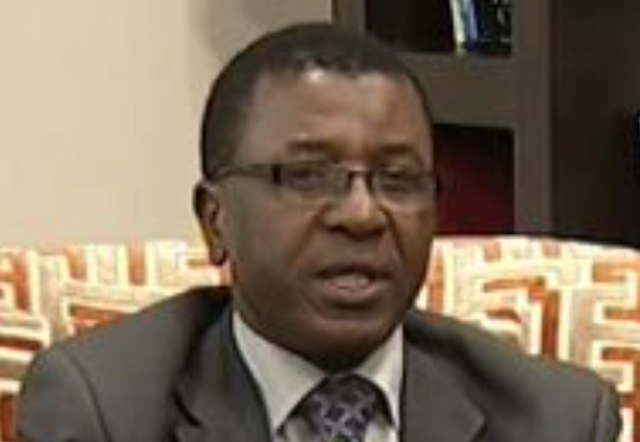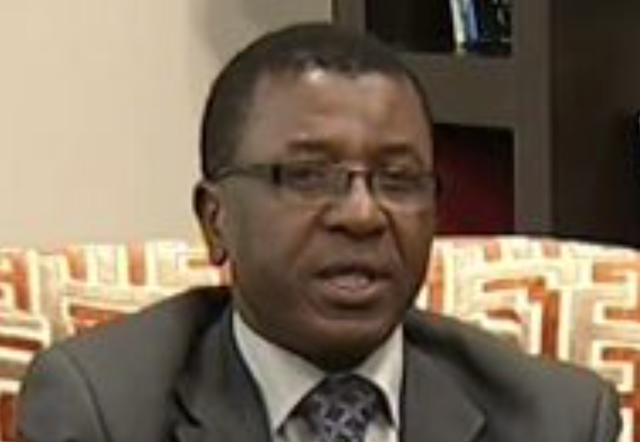Following the retirement of former Chief Justice Olukayode Ariwoola from the Supreme Court upon reaching the mandatory age of 70, the National Judicial Council has recommended Justice Kudirat Motonmori Olatokunbo Kekere-Ekun to President Tinubu as his replacement, subject however to confirmation by the Senate.
Justice Kekere-Ekun, who was called to the Nigerian Bar in 1981, is 66 years old. She began her judicial career in December 1989 as a Senior Magistrate Grade II in the Lagos State Judiciary, eventually rising to become a High Court judge in Lagos in July 1996. She was elevated to the Court of Appeal on September 22, 2004, where she served in various Court Divisions, including as presiding Justice of the Makurdi and Akure divisions in 2021 and 2022, respectively.
In 2023, she was elevated to the Supreme Court. As the most senior Justice in the Supreme Court following Justice Ariwoola’s retirement, Justice Kekere-Ekun has now stepped in as the new Chief Justice of Nigeria (CJN), making her the second female CJN in Nigeria’s history, after Justice Mariam Mukhtar, who served from July 2012 to November 2014.
I salute the new CJN and wish her a successful and impactful tenure, filled with wisdom, fairness, and dedication to upholding justice. I respectfully urge her to immediately initiate processes for a complete overhaul of the country’s judiciary to enhance judicial efficacy and efficiency and to bolster public confidence in the judiciary.
Justice Kekere-Ekun assumes her role at a time when the Nigerian judiciary is ranked as the most corrupt institution in the country, with Nigerian judges identified as the biggest recipients of bribes and kickbacks. According to a recent 160-page report titled “Corruption in Nigeria: Patterns and Trends,” based on a survey conducted by the National Bureau of Statistics (NBS) in collaboration with the United Nations Office on Drugs and Crime (UNODC), Nigeria’s public officials received N721 billion in cash bribes in 2023, with Nigerian judges topping the list of bribe recipients.
This is a severe indictment of the Nigerian judiciary and its judges, and it is deeply troubling. The new CJN must not treat this indictment lightly. What hope is there for the common man in Nigeria if the very judges who should be unbiased umpires in the adjudication of disputes are ranked as the biggest takers of bribes and receivers of kickbacks? There is no doubt that the country’s judiciary has been reduced to an object of derision by the very people who should labor to maintain its prestige. This is truly disheartening. In recent times, we have witnessed decency being discarded in open court, justice being put up for sale, frequent abuses of court processes, injustice being meted out to punish perceived enemies, and allegations of impropriety being openly leveled against members of both the Bar and the Bench. The avalanche of conflicting judgments from the Supreme Court has left Nigerian lawyers and the public uncertain about what judicial precedents actually are.
Therefore, Chief Justice Kekere-Ekun is respectfully urged to do everything possible within her authority and capacity to restore the integrity and honor of the country’s judiciary. She should begin by addressing official corruption and moral degeneracy within the Bench. Specifically, she should return the Supreme Court to its golden era, when Justices such as Anthony Aniagolu, Kayode Eso, Chukwudifu Akunne Oputa, Andrews Otutu Obaseki, Augustine Nnamani, and others brought their intellectual versatility and philosophical clarity to bear in their respective judgments to uphold substantial justice. Our democratization experiment will fail if the judiciary, a vital third arm of government, is compromised. Therefore, the judiciary must protect its independence and impartiality with the utmost care. It should be insulated from partisan politics, and political office holders must refrain from interfering with the judiciary’s work.
The Bench should be reserved for the best and brightest in character and learning, not for those who are unproductive or lack diligence. The appointment and elevation of judges should be based on merit, not on family connections, political patronage, or what Prof. Joseph Richard has dubbed “prebendalism.” The current process of appointing and removing judges in Nigeria is long overdue for a review. First, the process should be transparent, not shrouded in secrecy. Whenever a judicial vacancy exists, it should be widely advertised to the public so that interested lawyers can apply for consideration. The views of many practicing lawyers, who likely know the candidates better than the National Judicial Council (NJC), should be sought both before and after candidates are shortlisted.
Disciplinary action against judges should be routinely carried out to save the Bench from moral decay. Only incorruptible and irreproachable judges can steer the judiciary out of its current troubled state. The late eminent Justice Akinola Aguda was a tireless advocate for an incorruptible judiciary. He believed that a single error in appointing unworthy individuals to the Bench could ruin the entire administration of justice. His solution for ensuring an independent, incorruptible, and courageous judiciary was to appoint worthy individuals to the Bench.
The National Judicial Council (NJC), responsible for appointing judicial officers, is not obligated to appoint Supreme Court Justices exclusively from the pool of serving Court of Appeal Justices or to follow civil service bureaucracy in such appointments. There is nothing wrong with appointing senior lawyers with pedigree and respected academics to the Supreme Court to strengthen the Court.
For example, in 1972, Dr. Taslim Olawale Elias was appointed a Justice of the Supreme Court directly from the Faculty of Law, University of Lagos, and he later rose to become the most renowned scholarly Chief Justice Nigeria has ever produced. Justice Augustine Nnamani (of blessed memory) was appointed to the Supreme Court from the Bar. Justice Okay Achike (of blessed memory), who taught us Contract law and Commercial Law at the University of Nigeria, was appointed a High Court judge from academia and was later elevated to the Court of Appeal and the Supreme Court. There are more bright lawyers like Dr. Elias, Justice Nnamani, and Justice Achike waiting to be appointed to the Supreme Court.
In the same vein, seniority should not be the sole criterion for the appointment of the Chief Justice of Nigeria (CJN). Relying solely on seniority can lead to the promotion of mediocrity at the expense of meritocracy. A CJN can be appointed from academia. For example, in 1972, Dr. Taslim Olawale Elias came directly from the Faculty of Law at the University of Lagos to become the CJN, making his mark. There are more Dr. Eliases waiting in the wings to be appointed as CJN. We must discover them.
Beyond judges, our judicial personnel—court bailiffs, court clerks and registrars, court messengers, court typists, etc.—who also play crucial roles in the dispensation of justice, should strive to live above reproach. Our court personnel often ruin a litigant’s case even before it reaches the judge. Some court bailiffs refuse to effect a court process simply because they were unable to extort money from a litigant or their counsel. Many case files go missing in our courts today. Many litigants arrive at court only to discover, to their chagrin, that their case files have either been misplaced or completely lost. These are instances of administrative injustice, which in turn, lead to legal and social injustice.
Therefore, the Nigerian Bar Association (NBA) should also focus its attention on corrupt court personnel. Court registrars who indirectly extort money from litigants and lawyers should be exposed and brought to justice. Judicial personnel who extort money from litigants and lawyers before rendering the administrative services due to them should also be brought to justice. Lawyers must stop bribing court personnel or giving in to their extortionist demands.
The new CJN should muster the courage to revamp our criminal justice delivery system. One of the most egregious issues is that many awaiting trial inmates (ATMs) languishing in our correctional centres have spent more time in custody than they would have if they had been promptly charged, tried, convicted, and sentenced. There should be a massive decongestion of our correctional centres to alleviate the inhumane suffering of prisoners. The government should stop procrastinating and urgently implement the various recommendations presented to successive Nigerian governments regarding correctional centres.
Considering the lingering controversies surrounding the award of the rank of Senior Advocate of Nigeria (SAN) over the years, the guidelines for the conferment of SANship should be reviewed. The award of SANship should be based strictly on the quality of legal scholarship, not on the quantity of court cases a lawyer has completed at the lower and appellate courts.
Beyond the conferment of SANship for the quantity of cases a legal practitioner has completed in law courts, the Legal Practitioners Privileges Committee should consider conferring awards on legal practitioners who have excelled in other dimensions of legal practice. For example, to promote high ethical conduct and honorable behavior in the legal profession, the Legal Practitioners Privileges Committee could institute yearly awards for the most ethical and honorable legal practitioners in Nigeria. Alternatively, the Committee might consider rewarding diligence and hard work among practicing lawyers by setting up a Hall of Fame for lawyers who have diligently and expeditiously prosecuted their clients’ cases each year.
There should also be awards for legal practitioners who have excelled in securing the release of many Awaiting Trial Inmates (ATM) from unlawful detention. Additionally, there should be yearly awards for physically challenged legal practitioners in Nigeria and for the neatest and most properly robed legal practitioners. In this way, all-round excellence in the legal profession is promoted on non-discriminatory grounds.
All in all, evidence from around the world shows that the rule of law is a critical factor in empowering individuals, ending discrimination (especially against women), and enhancing competition. In fact, one of the four pillars of economic freedom and prosperity in any country is a strong rule of law. The rule of law deserves precedence over other important objectives if Nigeria is truly committed to improving human conditions, preserving peace, respecting individual human rights, and achieving greater economic prosperity and human flourishing.


